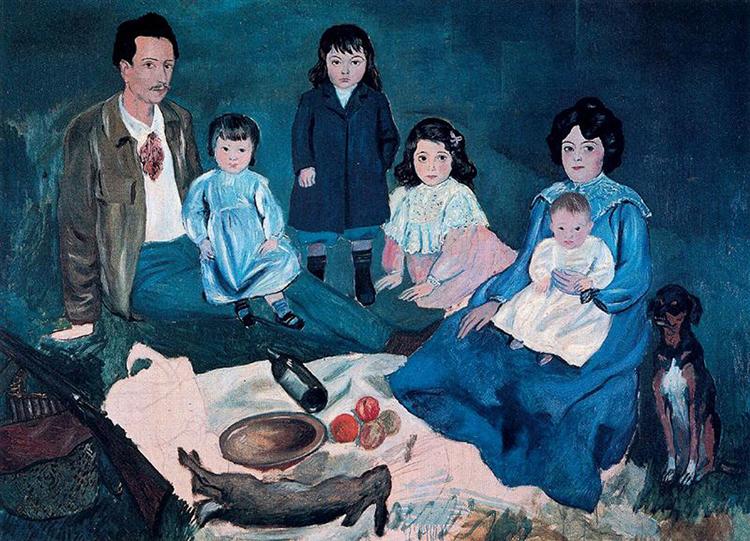Without stronger kin, the American way grows fatally weak.
To Save the American Way, Build Anew

You can’t preserve something that no longer exists.
There is much to commend about the descriptive elements of Tom Klingenstein’s essay, “Preserving the American Way of Life.” In particular, Klingenstein correctly identifies identity politics as corrosive to national unity and both personal and civic virtue.
However, I have one overarching critique about the prescriptive element the essay offers. We are past the point where “preserving the American way of life” is the urgent political imperative. It is true that the politics we now need are regime-level politics—who are we and how shall we live? But the regime of the founders no longer exists, so the institution of a regime that is true to the best promises of America would be in fact not an act of preservation but a new creation.
Reading Klingenstein’s essay put me in mind of William Morris’s 1890 novel News From Nowhere. Morris was a genius. He was a designer, an artist, and a socialist with a romantic streak. After he died at 62, his doctor said the cause of death was “simply being William Morris and having done more work than most ten men.”
News From Nowhere describes life in an idyllic world of cheerfully interdependent artisans, farmers, and craftsman living happily side-by-side in an alternative version of Victorian England. Picture the Shire, where the hobbits of Middle Earth reside in a highly idealized socialist utopia.
I was reminded of this because the America built by its early settlers was a middle-class nation. It was not a utopia, of course, but it did provide security, prosperity, and liberty to its people on an impressive scale. It showed what was possible, which is why there were successive waves of settlers from 1607 in Jamestown up through the War of Independence and beyond.
It’s that nation of strong families, strong churches, and broad prosperity that Klingenstein wants to preserve. But that which has been destroyed cannot be preserved. It must be rebuilt.
The neoliberal order that replaced the American regime instituted by the founders wrought havoc on our society. It turned us from a nation of citizens mutually dependent upon one another to a society of consumers whose highest goal is to maximize their utility.
In the neoliberal telling of the story, schlepping an hour to work in the morning and another hour home at night while your wife (if you’re lucky enough to have one) does the same thing isn’t drudgery. It’s revealed preference! But it’s not. Klingenstein correctly notes that “for most people, happiness was found in family, church and community.” And on those counts, we’re not doing very well.
Church membership was 70% or higher from 1937 to 1976 according to Gallup. It’s now around 50%, with weekly church attendance likewise declining to 38% of the population just as the number of people who say they attend church seldom or never has risen to 48%.
Families, too, are under threat. The marriage rate has declined from nearly 10 per thousand in 1990 to 6.5 in 2018. Median age at first marriage for men has increased from 26 in 1900 to 30 in 2018 and from 22 to 28 for women. Another way to look at this same phenomenon is by asking, how many adults are married? In 1970, 72% of all American adults were married. But by 2016 that number had declined to 50%. At the same time, the percentage of children born to single mothers has soared.
As described above, families are formed later and less frequently, they have fewer children, and they are less financially secure perhaps than ever before in this country. Oren Cass has created a measure called the Cost of Thriving Index. Using that index, he demonstrates that the cost of middle-class living in the United States (house, car, healthcare, university education) now takes 53 weeks of work at the median wage versus 30 in 1985. This, of course, has consequences beyond those described above, including the necessity of the two-income household.
This has an impact on birth rates, which have declined from nearly 4 births per woman in 1960 to 1.77 in 2019, well below the replacement rate. A society that refuses to reproduce itself is not optimistic about the future.
Corrosion
When Klingenstein says that multiculturalism does not see society “as a community of rights-bearing individuals with a shared understanding of a national good,” he’s absolutely right. This is by design.
Multiculturalism can be understood as the war of all against all. Gone is a unifying national identity, purpose, and good. That is replaced by a constantly multiplying cascade of self-chosen identities. It is consumerism ad absurdum. One of the many ironies, of course, is that multicultural ideology actually suppresses and homogenizes genuine cultural diversity. That’s why there is a Starbucks in the entry pavilion at the Louvre.
But the two types of identities explicitly forbidden are national and class identities. Elites in America, and globalist neoliberal elites more generally, use multiculturalism as a means by which to divide their political rivals, namely the broad middle class, while seeming to empower them.
In class terms, American elites have allied themselves with the professional managerial class of elite aspirants and with the lumpenproletariat—against the working and middle class. The lumpenproles can be understood as the permanent underclass, though Marx used more explicit and more amusing definitions that would now probably get him canceled for denigrating things like prostitution. Elites therefore have an incentive to increase the size of the lumpen and make middle-class life more precarious. In the past 50 years they have succeeded beyond their wildest dreams.
If we are going to rebuild the American nation, we must have concrete metrics against which political and cultural elites can be judged. They are the same necessities against which virtually all societies have been judged as successes or failures:
- Are families intact and growing? Are there more of them over time?
- Is the nation materially prosperous and does the average family share in that prosperity?
- Is the nation having enough children to increase its population?
- Are people secure in their lives and their property? Are they safe in their homes?
- Is the nation secure against external enemies?
- Is religious piety strong and is it seen as essential to the national identity?
On a wide array of metrics, from home ownership to income to share of national wealth at a particular age, millennials are doing worse than their parents. In fact, they’re doing worse than every generation in the 20th century. Generation Z (1997-2012) is unlikely to fare any better without significant change. It’s no wonder younger people are attracted to radical ideologies: they have reason to believe that they have nothing to lose. That must change.
In pursuing these goals, it’s helpful to remember our history. Plymouth 1620 is the necessary predicate to 1776 and 1787. The settlers of the Plymouth Colony had a shared purpose. The settlers of the American colonies built the foundation of the American way of life based upon self-sustaining families, public morality based upon revealed religion, yeoman farmers, independent artisans, and a merchant class that linked them together.
The political regime established when the nation became independent was possible because the pre-political institutions—the family and the church—were strong. The American way of life and the American system of government were possible and thrived because of the character of its citizens. Strong families and strong churches are the foundation upon which civil society and strong, just government is built.
The people who settled this country, who fought for independence, who framed and ratified the Constitution were builders. They were engaged in a positive project to create something better. We must do the same. When we start having more families, more children, and prosperity that is more broadly enjoyed, young Americans will see the future as a promise rather than a threat. That’s our measure of success—but it requires building, not just preserving.
The American Mind presents a range of perspectives. Views are writers’ own and do not necessarily represent those of The Claremont Institute.
The American Mind is a publication of the Claremont Institute, a non-profit 501(c)(3) organization, dedicated to restoring the principles of the American Founding to their rightful, preeminent authority in our national life. Interested in supporting our work? Gifts to the Claremont Institute are tax-deductible.
It’s time for conservatives to get real.
We must wrest our families back from our decadent overlords.
Individual liberty can’t stand on its own.
It’s a mistake to dismiss the ideological dimension of the culture war.
The politics of nostalgia can’t meet the moment.






